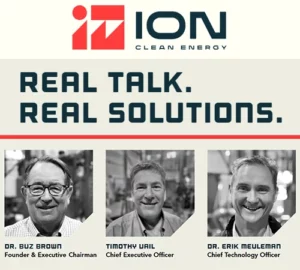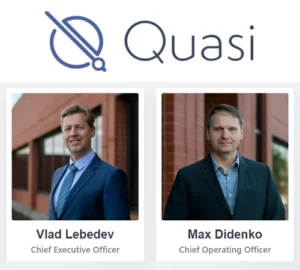
Verne recently secured $15.5 million in strategic funding to advance its cryo-compressed hydrogen (CcH2) technology, enhancing hydrogen storage for heavy-duty transportation. This technology offers significant improvements over traditional methods, enabling vehicles to achieve longer ranges and quicker refueling times without increasing weight. These advancements position Verne as a key player in driving the transition towards zero-emission vehicles in sectors such as trucking, aviation, and mining.
The Growing Need for Clean Energy in Transportation
The transportation sector, particularly heavy-duty transport, is a significant contributor to global greenhouse gas emissions, accounting for approximately 12% in the U.S. alone. With environmental sustainability becoming an imperative, regulatory frameworks and market dynamics are increasingly favoring the adoption of zero-emission vehicles. Amidst this backdrop, Verne emerges as a pivotal player, focusing on high-density hydrogen storage to enable cleaner transportation solutions.
Overview of Verne’s Recent Strategic Funding Round
Verne recently secured a strategic investment totaling $15.5 million. This funding round was spearheaded by Trucks Venture Capital and saw participation from both longstanding allies such as Amazon’s Climate Pledge Fund and newcomers like United Airlines Ventures Sustainable Flight Fund. This injection of capital is set to propel Verne’s technological advancements in hydrogen storage, signaling a robust endorsement from leading transportation and environmental stakeholders.
Technological Breakthroughs in Hydrogen Storage
At the core of Verne’s innovation is its cryo-compressed hydrogen (CcH2) technology, which represents a significant leap over existing hydrogen storage methods. Traditional hydrogen storage solutions, such as 700 bar compressed gas systems, have limitations in density and efficiency. In contrast, Verne’s CcH2 technology cools and compresses hydrogen gas to achieve an internal density of 73 grams per liter. This is a 33% improvement over liquid hydrogen systems and an 87% increase over traditional methods. The benefits of this technology include:
- Enhanced Range and Payload: Vehicles equipped with CcH2 technology can achieve ranges exceeding 900 miles, mirroring the performance metrics of diesel-powered counterparts without the environmental toll.
- Reduced Refueling Time: Compared to battery electric alternatives that require hours for a full charge, hydrogen-fueled vehicles can be refueled in substantially less time.
- Decreased Overall Weight: The technology offers a weight-efficient solution, crucial for maximizing payload without compromising vehicle performance.
This advanced storage capability not only meets but exceeds the stringent requirements of long-haul transportation, positioning Verne at the forefront of the shift towards sustainable heavy-duty transport solutions.
Implications for Heavy-Duty Transportation
Verne’s cutting-edge hydrogen storage technology holds transformative potential for the heavy-duty vehicle market. By closing the performance gap between zero-emission vehicles and traditional diesel trucks, this technology addresses critical barriers such as range, weight, and refueling logistics. Specifically, Verne’s solution can significantly impact various sectors:
- Trucking: Enables long-haul trucks to maintain high efficiency and operational range without emissions.
- Aviation and Ports: Offers viable energy solutions for aircraft and port vehicles, which require high power for extended periods.
- Mining: Provides a practical alternative to diesel in remote and harsh environments where traditional fuel logistics are challenging and costly.
Recommended: Sprinto Raises $20M: A Leap Towards Intelligent Compliance Solutions
Challenges and Opportunities Ahead
Despite the promising advancements, Verne faces several challenges in commercializing their hydrogen storage technology. Scaling up to meet industry demands while maintaining cost efficiency and reliability is paramount. Additionally, the broader adoption of hydrogen fuel technologies depends on overcoming existing hurdles:
- Infrastructure Development: Expanding the hydrogen refueling infrastructure to support widespread use.
- Cost Reduction: Lowering the costs associated with hydrogen production and storage to compete with conventional fuels.
- Public and Regulatory Acceptance: Ensuring regulatory support and public acceptance for new technologies.
However, these challenges also present opportunities. As industries and governments intensify their efforts towards decarbonization, demand for innovative solutions like Verne’s increases. Strategic collaborations and continued investment could accelerate market readiness and adoption.
Strategic Insights from Industry Experts
Industry leaders and investors have expressed strong support for Verne’s approach to hydrogen storage. Ted McKlveen, Co-founder & CEO of Verne, emphasizes the company’s commitment to delivering zero-emission solutions that align with global sustainability goals without forcing industries to compromise on performance. According to Jeffrey Schox, General Partner at Trucks Venture Capital, “Verne’s technology not only supports the decarbonization of heavy-duty transportation but also propels the entire sector towards a more sustainable future.”
Driving Forward: Verne’s Role in a Cleaner Future
As the push for clean energy continues to gain momentum, Verne’s advancements in hydrogen storage are more critical than ever. Their technology plays a crucial role in enabling heavy-duty transportation to transition away from fossil fuels, thereby reducing environmental impact and helping industries meet emerging green standards. Looking ahead, Verne is poised to lead the charge in sustainable transportation, making significant strides towards a cleaner, more efficient future. This journey not only reshapes the transportation landscape but also sets a benchmark for innovation in the clean energy sector.
Please email us your feedback and news tips at hello(at)dailycompanynews.com






